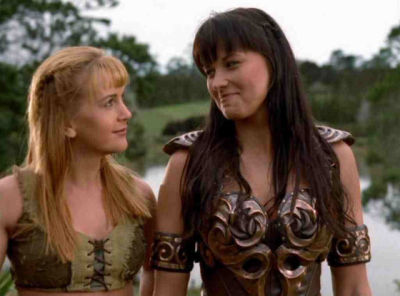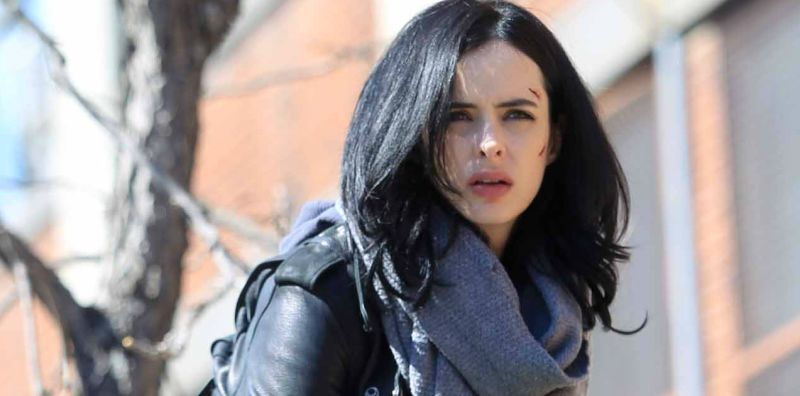Last month, much to the frothy anticipation of comic book fans, Netflix released the Marvel web series Jessica Jones. If you're an early adopter -- or even if you just like reading entertainment news -- you know the basics: Jessica is a private eye in NYC with superhero tendencies, PTSD, and a liver designed for whiskey. The show is set in the present, but follows the typical '50s detective noir motif of an alcoholic anti-hero digging up dirt in a metropolis.
The twist? The show continuously subverts gender norms, and places the female protagonist in a role of kick-ass prowess.
A few of her predecessors, Xena and Buffy Summers, were instant cult heroine classics. They taught the little girls of the '90s to throw witticisms into the face of danger, whether at a king dead-set on killing a baby fated to dethrone him, or a boyfriend who turns evil after the first time you two have sex. It's tough to tell right now whether Jones will be an influential cult hit -- she has a dark side that’s hard to stomach. What we can do is figure out where she fits on the echelon of supernatural female badassery.
First off: all three shows place a huge emphasis on female friendships. Xena’s sidekick Gabrielle helps Xena pursue the greater good with her maternal instincts, naivete, and sarcastic comebacks. She’s Xena’s moral compass and strategical mind when a roundhouse kick and screaming “ayi-ayi-ayee” just won’t cut it. Also,

the show was hugely influential with the lesbian community because of the sexual innuendos and tension between the two characters. Maybe not an obvious mainstream media win for the LGBTQ community, but a foot in the door nonetheless.


